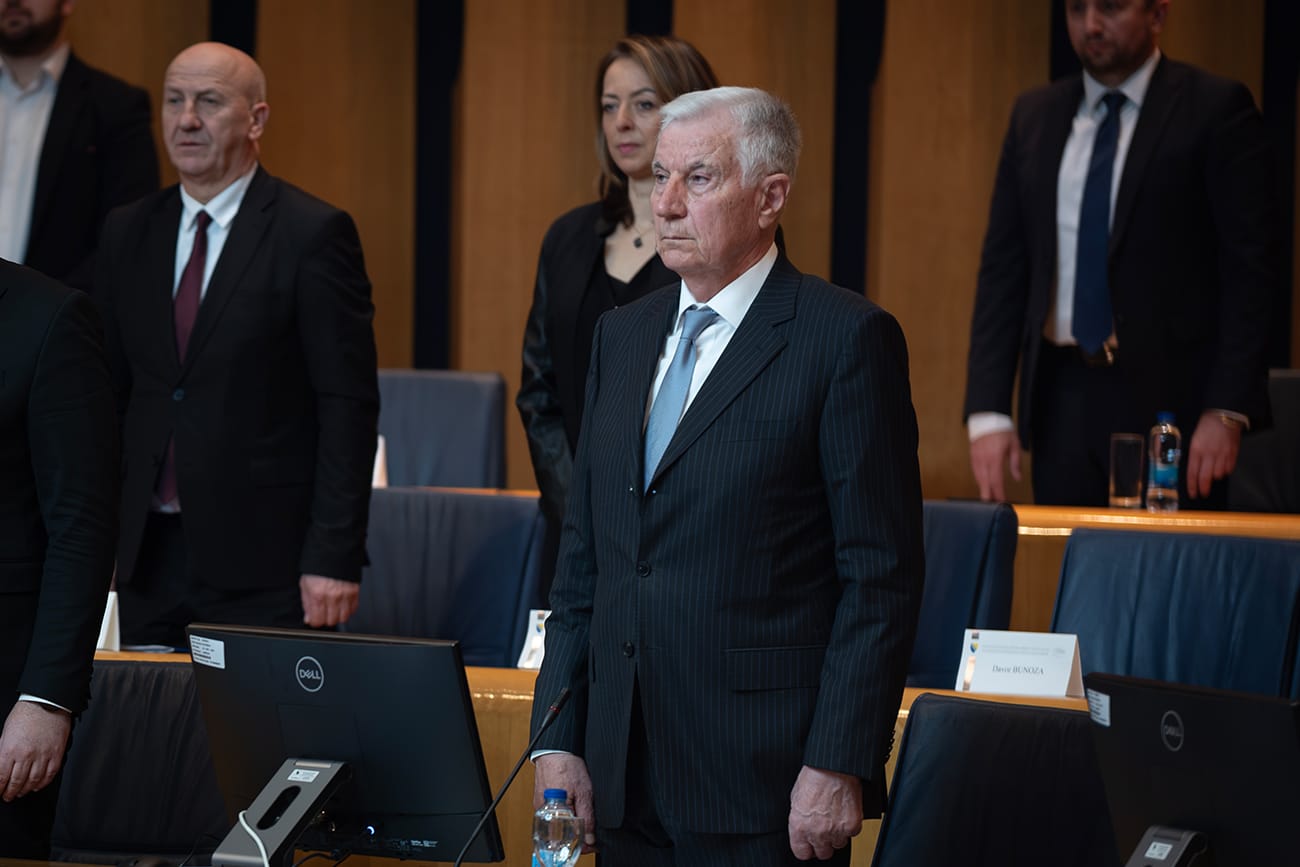The President of Republika Srpska, Milorad Dodik, has granted a pardon to Svjetlan Nović, the nephew of his fellow member in the Alliance of Independent Social Democrats (SNSD), Sredoje Nović. This is the first—and so far only—pardon Dodik has signed in 2025.
Exercising the authority granted to him by his office, Dodik reduced Nović’s two-year prison sentence by six months. Nović has been serving his sentence in Banja Luka prison since May 2024 and is now expected to be released by the end of 2025 unless he is granted parole in the meantime.
Sredoje Nović, a delegate in the Parliamentary Assembly of Bosnia and Herzegovina and the uncle of the pardoned man, briefly commented on the matter: “What’s that got to do with me?”
When asked by a journalist from the Centre for Investigative Reporting (CIN) whether he had intervened to have the sentence reduced, Nović replied: “Where did you get that from? Did you read that somewhere?” he snapped, adding that the questions were inappropriate before abruptly ending the conversation.
Svjetlan Nović was convicted of domestic violence by the Basic Court in Banja Luka in October 2022. According to court records, in 2017, he inflicted serious injuries on his wife and later threatened to kill her with his service pistol, which he had been issued as a member of the State Investigation and Protection Agency (SIPA). The assault took place in front of their children.
During the trial, witnesses testified that Nović had a history of abusive behaviour and that his wife was not allowed to receive visits from her own family without his permission. Even during court proceedings, Nović raised his voice at her, telling her she “couldn’t speak now.”
His wife told the court that he became aggressive when under the influence of alcohol, that she had endured abuse before, and that she had once tried to speak to his uncle—since Nović had grown up without a father. According to her testimony, the uncle had promised to “sit down and have a word with him,” but that conversation never happened.
After beginning his prison sentence, Svjetlan Nović filed a request for a pardon. The Ministry of Justice of Republika Srpska, led by Miloš Bukejlović of the SNSD, and the Basic Court in Banja Luka both gave a favourable opinion on the pardon.
The court explained that it had no objections to reducing the sentence, noting that Nović had no prior convictions and no other criminal proceedings pending against him. It was also viewed positively that he had voluntarily reported to begin serving his sentence, was actively participating in a rehabilitation programme while in prison, had expressed genuine remorse, and had shown a desire to find employment and support his children after his release.
Svjetlan Nović retired in September 2023. He was hired by SIPA in 2003, during the time his uncle, Sredoje Nović, was heading the agency.
From May 2019 until his retirement, he was suspended from duty.
Svjetlan Nović is one of three individuals pardoned in Bosnia and Herzegovina by early April 2025. The President of the Federation of Bosnia and Herzegovina (FBiH), Lidija Bradara, reduced the sentences of Zijo Melić from Travnik and Ahmed Kurdić from Zenica.
Melić was sentenced to one year in prison by the Cantonal Court in Novi Travnik in October 2023 for unlawfully cutting down six spruce trees in a forest owned by the Tubanović family. Following his pardon, his prison sentence was commuted to a suspended sentence.
Kurdić was sentenced by the Cantonal Court in Zenica in May 2022 to one year and four months in prison for causing a traffic accident in the Radakovo neighbourhood of Zenica, which resulted in the death of Kasim Pivić. The President of the Federation reduced his sentence by five months, allowing him, if he so wished, to convert his remaining prison term into a fine. He has yet to take this option and is currently serving his sentence at the Busovača prison.
Records of all pardons granted by authorised officials from 2003 to April 2025 are available in the public database of the Centre for Investigative Reporting, which can be easily accessed and searched by any citizen. The database includes details such as the names of those convicted, the type of pardon granted, and the officials who signed them.







